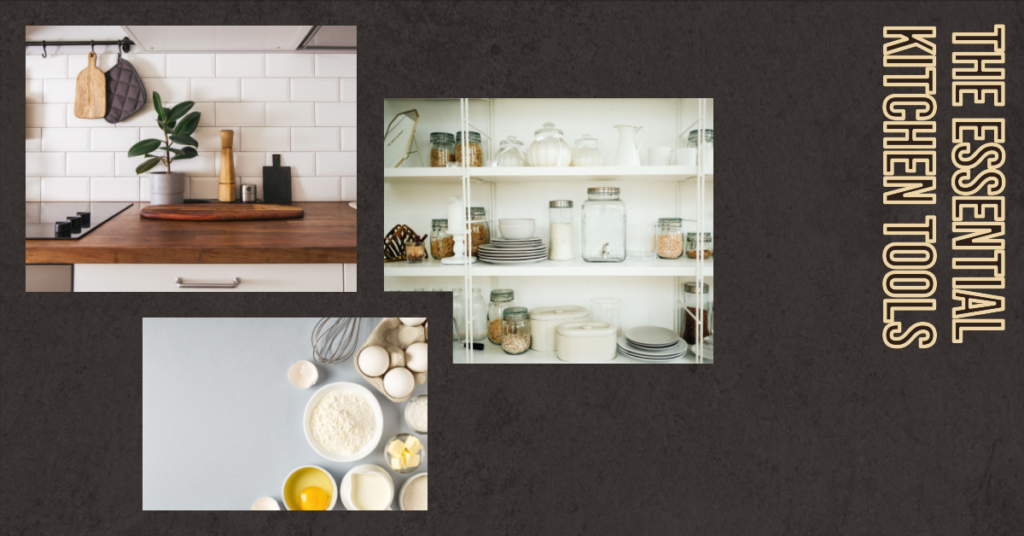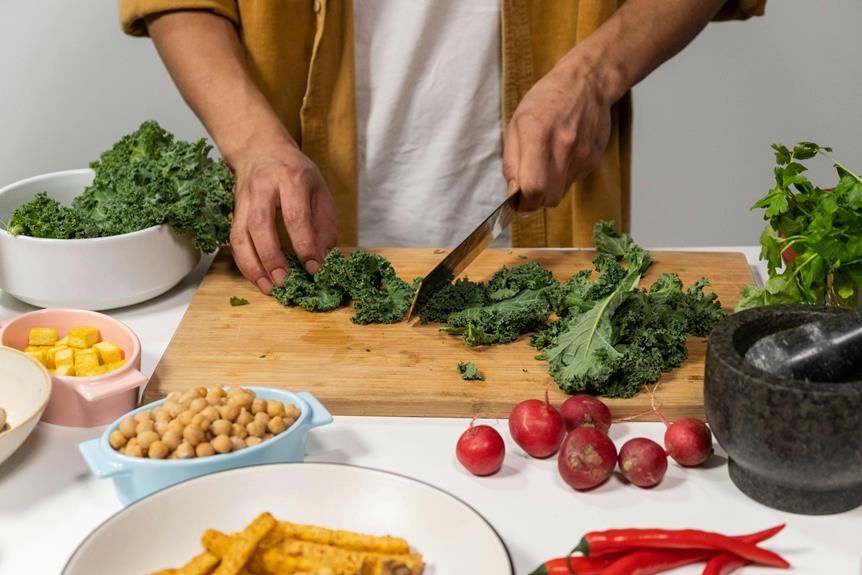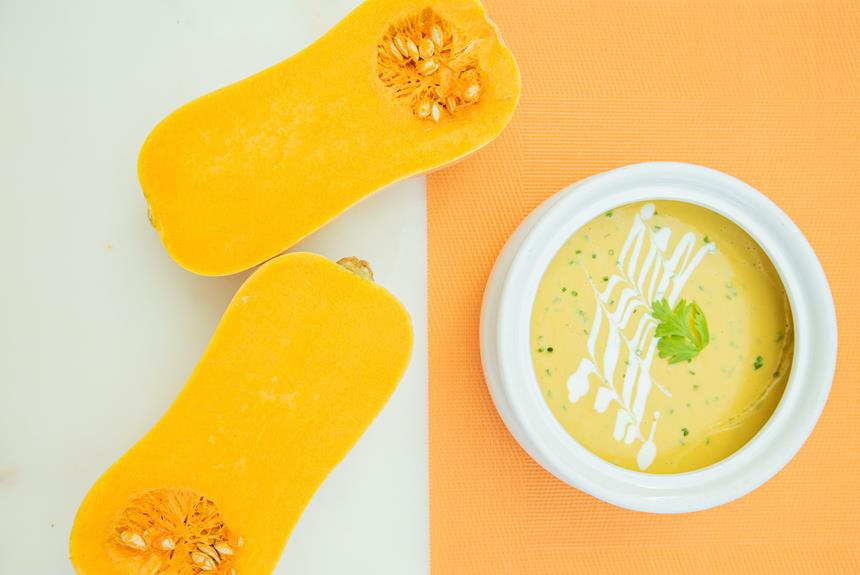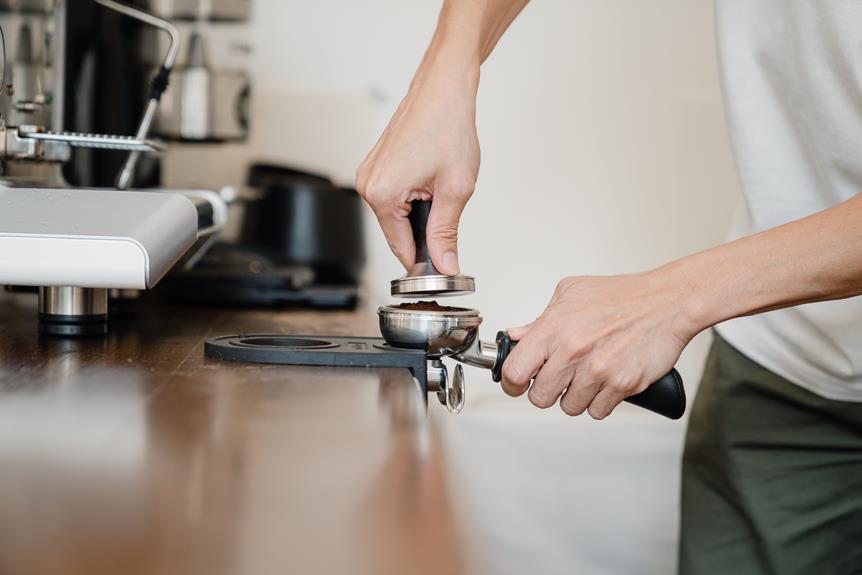As you step into your kitchen, you're surrounded by the remnants of last night's dinner and this morning's breakfast. The sink's piled high with dirty dishes, and the countertops are streaked with crumbs and spills. It's time to get cleaning, but you're determined to do it without harming the planet. You've heard of eco-friendly cleaning methods, but where do you start? From swapping out harsh chemicals for natural alternatives to adopting daily habits that reduce waste, there are simple changes you can make to transform your kitchen into a green oasis. But what are the most effective strategies, and how can you make them a part of your daily routine?
Essential Eco-Friendly Cleaning Supplies
When it comes to cleaning your green kitchen, you'll want to start with the right tools, and that means stocking up on essential eco-friendly cleaning supplies that are gentle on the environment and your kitchen surfaces. You don't want to undo all your hard work creating a sustainable kitchen by using harsh chemicals that harm the planet. Look for brands that prioritize Brand Ethics and transparency in their Supply Chains. This certifies that the products you use are not only effective but also responsibly sourced.
Some eco-friendly must-haves include reusable cloths, biodegradable dish soap, and plant-based all-purpose cleaners. When shopping, read labels carefully and opt for products with minimal packaging, recycled materials, and refill options. You can also consider buying in bulk to reduce waste. By choosing the right eco-friendly cleaning supplies, you'll be able to keep your kitchen sparkling while also doing your part for the planet. Remember, every small change adds up, and making conscious choices about the products you use can make a significant difference in the long run.
Natural Alternatives to Chemicals
Now that you've stocked up on eco-friendly cleaning supplies, it's time to explore natural alternatives to harsh chemicals. You'll be surprised at how effective everyday items like baking soda, vinegar, and lemon juice can be in tackling tough kitchen messes. By switching to these eco-friendly cleaning agents, you'll create non-toxic kitchen solutions that are better for you, your family, and the environment.
Eco-Friendly Cleaning Agents
You can ditch those harsh chemical cleaners and switch to eco-friendly cleaning agents that are gentler on the environment and your skin. When shopping for these alternatives, look for products with reputable eco labels and green certifications. These labels, such as EcoLogo and Green Seal, guarantee that the products meet rigorous environmental standards. You'll find them on products that are biodegradable, non-toxic, and free of harsh chemicals.
Some popular eco-friendly cleaning agents include baking soda, white vinegar, and castile soap. These natural ingredients are effective at cleaning surfaces without leaving behind harmful residues. You can also opt for plant-based cleaning products that are specifically designed for kitchen surfaces. Always read the labels and check for certifications to confirm you're getting a genuinely eco-friendly product.
Non-Toxic Kitchen Solutions
As you adopt a greener kitchen culture, you must prioritize swapping out harsh chemicals for non-toxic kitchen solutions. Five common kitchen chemicals – bleach, ammonia, formaldehyde, phthalates, and quaternary ammonium compounds – can be replaced with natural alternatives that are just as effective, yet gentler on your health and the environment.
You can ditch bleach for baking soda, a natural abrasive that effectively scrubs away tough stains. Ammonia can be swapped for white vinegar, a natural disinfectant that's also antibacterial. For a natural alternative to formaldehyde, try using essential oils like lemon or tea tree oil, which have antimicrobial properties. Phthalates can be replaced with natural fragrances like lavender or peppermint, while quaternary ammonium compounds can be swapped for soap-based cleaners.
DIY Kitchen Cleaning Products
When you make your own kitchen cleaning products, you're in control of what goes into them. You can combine natural ingredients like baking soda and lemon juice to create effective cleaning agents that are gentle on surfaces and the environment. By mixing and matching these ingredients, you'll be able to create a range of homemade cleaning solutions that tackle tough kitchen messes without harsh chemicals.
Natural Ingredient Combinations
Five simple yet potent natural ingredient combinations can be mixed and matched to create a range of effective DIY kitchen cleaning products. You’ll be amazed at how well these food pairings work together to tackle tough kitchen messes. Take baking soda and vinegar, for instance. This classic combo is a powerhouse for cleaning countertops, sinks, and faucets. The abrasive nature of baking soda helps lift dirt and grime, while the acidity in vinegar breaks down tough stains. Another winning combination is lemon juice and salt. The acidity in lemon juice cuts through grease and grime, while the abrasive nature of salt helps scrub away tough stains. You can also harness the spice synergy of cinnamon and cloves to create a natural air freshener. Simply mix equal parts cinnamon and cloves with water to create a potent spray that eliminates kitchen odors. By experimenting with these natural ingredient combinations, you’ll create a range of effective DIY cleaning products that are gentle on surfaces and the environment. Additionally, you can enhance your cleaning arsenal with a mixture of essential oils and water. For a refreshing scent and effective deodorization, consider adding a few drops of lemon essential oil to your cleaning solutions. This not only leaves your kitchen smelling fresh but also qualifies as one of the best lemonscented cleaners for kitchens, combining natural power with a pleasant aroma. With these simple recipes, you can maintain a sparkling, inviting kitchen environment while using safe and eco-friendly ingredients.
Eco-Friendly Cleaning Agents
You can create your own eco-friendly cleaning agents by repurposing common kitchen staples, transforming them into effective DIY kitchen cleaning products that are gentle on surfaces and the environment. This approach allows you to bypass commercial products with unclear label regulations and questionable ingredients. By making your own cleaning agents, you'll have complete control over the ingredients and their impact on the environment.
When shopping for commercial eco-friendly cleaning products, look for brands that prioritize transparency. Check the labels for clear ingredient lists and certifications like EPA Safer Choice or Leaping Bunny. Be wary of vague terms like "natural" or "eco-friendly," which can be misleading. Instead, opt for brands that provide detailed information about their ingredients and manufacturing processes.
Homemade Cleaning Solutions
How do common kitchen staples like baking soda, lemon juice, and vinegar transform into powerful cleaning agents that tackle tough kitchen messes? It's all about mixing and matching these ingredients to create your own homemade cleaning solutions. You can create a natural scrub by combining baking soda and water to remove stubborn stains and grout. Meanwhile, a mixture of lemon juice and vinegar makes for a potent disinfectant that can tackle even the toughest kitchen germs.
These kitchen hacks are not only eco-friendly but also budget-friendly, allowing you to give your kitchen a fresh start without breaking the bank. By making your own cleaning products, you can avoid harsh chemicals and toxins that can harm your health and the environment. Plus, you'll reduce waste and packaging by repurposing items you already have at home. With a little creativity, you can whip up a range of effective cleaning solutions that are gentle on surfaces and the planet. So, get mixing and give your kitchen the green cleaning makeover it deserves!
Effective Green Cleaning Methods
Many eco-friendly cleaning products on the market today offer a safer, more environmentally responsible alternative to traditional chemical-based cleaners. However, switching to green cleaning methods requires more than just swapping out products – it demands a shift in your mindset. You need to adopt a green mindset, one that prioritizes the well-being of the planet and its resources. This means being mindful of your cleaning habits and the impact they have on the environment.
When it comes to cleaning psychology, you'll find that a clutter-free kitchen is not only more visually appealing, but it also reduces stress and anxiety. By maintaining a tidy space, you'll feel more in control and motivated to continue your green cleaning journey. Effective green cleaning methods involve more than just using eco-friendly products; they require a holistic approach that incorporates organization, decluttering, and sustainable practices. By adopting this approach, you'll be able to create a kitchen that's not only sparkling clean but also sustainable and environmentally responsible.
Best Eco-Friendly Kitchen Cleaners
With a green mindset in place, it's time to stock your kitchen with effective eco-friendly cleaners that are gentle on surfaces and the planet. You're probably wondering which brands and products to trust. Let's explore some brand comparisons and product reviews to help you make an informed decision.
Seventh Generation and Ecover are two popular eco-friendly brands that offer a range of kitchen cleaners. Seventh Generation's all-purpose cleaner is a top pick, with its plant-based formula and biodegradable ingredients. Ecover's dish soap is another favorite, with its gentle yet effective formula that's free of phosphates and chlorine.
When choosing an eco-friendly cleaner, look for certifications like EPA Safer Choice or Leaping Bunny. These labels guarantee that the product meets rigorous environmental and animal welfare standards. You can also read product reviews from reputable sources like the Environmental Working Group (EWG) or Amazon to get a sense of how well a product performs in real-world use. By doing your research, you can find the perfect eco-friendly cleaner for your kitchen that's both effective and gentle on the planet.
Sustainable Cleaning Routine Tips
By incorporating simple habits into your daily routine, you can substantially reduce waste and energy consumption in your kitchen. Start by establishing morning habits that set the tone for a sustainable day. Before brewing your coffee, take a few minutes to tidy up the kitchen, putting away any clean dishes and wiping down countertops. This habit helps maintain a clutter-free kitchen and reduces the need for deep cleaning later on.
In the evening, develop nightly routines that promote sustainability. After dinner, make it a habit to scrape off food waste into your compost bin and rinse dishes immediately. This prevents food from hardening on plates and reduces the amount of water needed for washing. Additionally, turn off lights and appliances when not in use to conserve energy. By adopting these simple habits, you'll be on your way to a more sustainable kitchen. Remember, every small change adds up, and these daily routines can make a significant impact on the environment over time.
Zero-Waste Kitchen Cleaning Hacks
Streamlining your cleaning process with zero-waste hacks can substantially reduce your kitchen's environmental footprint. By adopting a few simple habits, you'll be well on your way to achieving your kitchen goals and minimizing waste. Start by ditching paper towels and switching to reusable cloths instead. Not only will you reduce waste, but you'll also save money in the long run.
Next, make your own all-purpose cleaning solution using common household ingredients like baking soda and vinegar. This will eliminate the need for single-use cleaning products and their packaging. Take it a step further by repurposing old containers and bottles to store your homemade cleaning solutions. This waste mindset shift will have a significant impact on your kitchen's overall sustainability.
Frequently Asked Questions
How Do I Remove Stubborn Grease Stains From Kitchen Cabinets?
You'll tackle that stubborn grease stain on your kitchen cabinet by mixing baking soda and water to create a paste, applying it, and letting it sit before wiping clean; regular cabinet maintenance and grease buildup prevention will keep them looking new.
Can I Use Microfiber Cloths With Natural Cleaning Products?
You can definitely use microfiber cloths with natural cleaning products! They're a perfect pair, and with proper Microfiber Care, your cloths will maintain their Cloth Durability, staying effective and gentle on surfaces for a long time.
Are Eco-Friendly Cleaning Products More Expensive Than Traditional Ones?
You'll find that eco-friendly cleaning products can be pricier, but a brand comparison and cost analysis will show you that some affordable options exist, and the long-term benefits might just be worth the slight extra cost.
How Often Should I Deep Clean My Kitchen to Maintain Cleanliness?
You should deep clean your kitchen every 2-3 months, breaking it down into seasonal schedules and focusing on one kitchen zone at a time, like the counters or sink area, to maintain a clean and organized space.
Can I Use Baking Soda as a Natural Abrasive for Ceramic Surfaces?
You can use baking soda as a natural abrasive for ceramic surfaces, but be cautious not to scratch them. For ceramic maintenance, consider soda alternatives like borax or washing soda, which are gentler and equally effective.
Conclusion
You've made it! By incorporating these top green kitchen cleaning tips into your daily routine, you'll be well on your way to a more sustainable kitchen. Remember, every small change adds up – from ditching paper towels to making your own cleaning solutions. Start with what works for you and build from there. With a little creativity and commitment, you can achieve a zero-waste kitchen that's not only better for the planet but also a healthier, happier space for you and your family.





